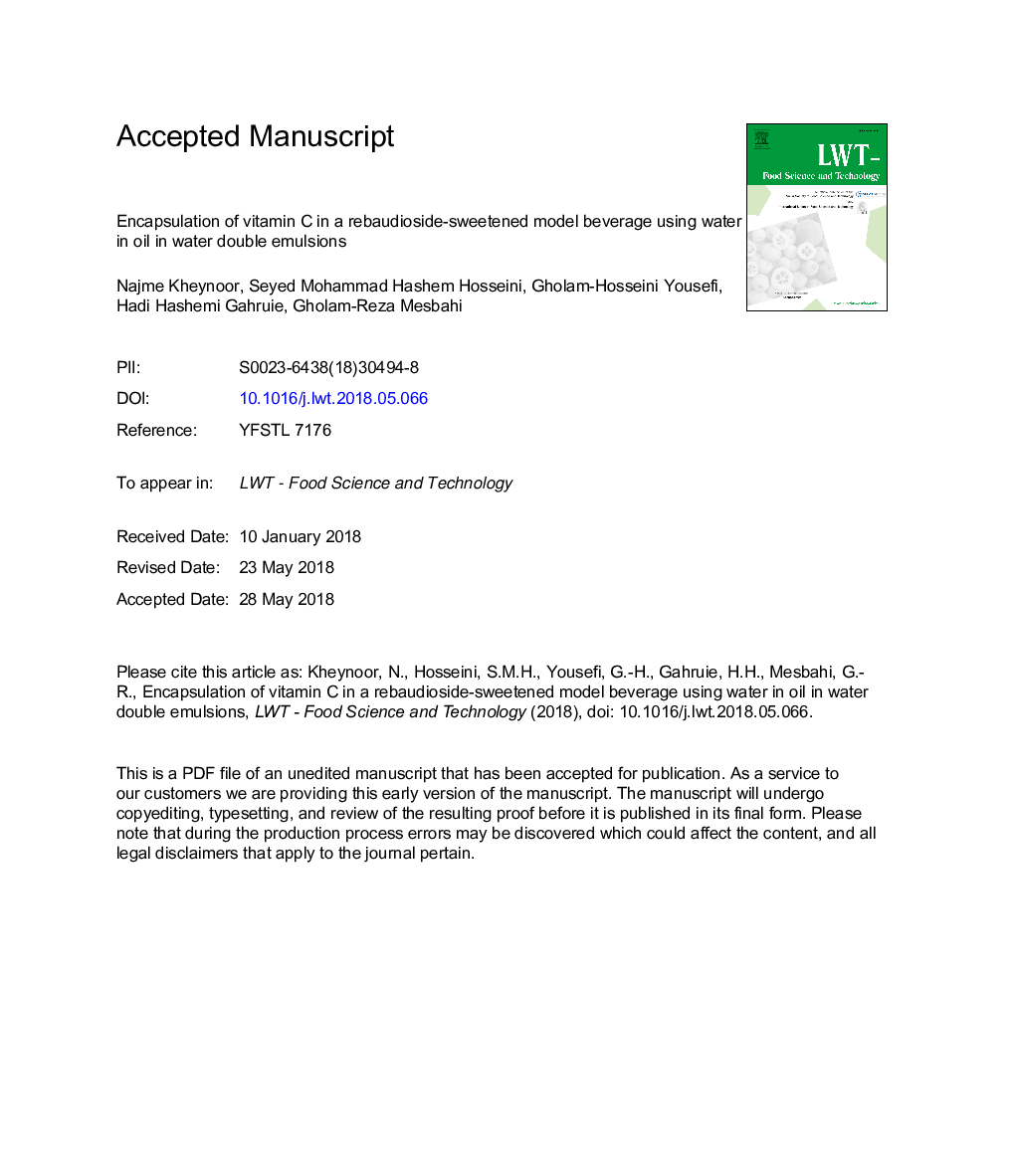| Article ID | Journal | Published Year | Pages | File Type |
|---|---|---|---|---|
| 8890571 | LWT - Food Science and Technology | 2018 | 41 Pages |
Abstract
In this work, vitamin C (VC) was encapsulated in a sugar-free rebaudioside-sweetened model beverage using water in oil in water (W1/O/W2) double emulsions (DEs). One- and two-step preparation methods were utilized for development of DEs. Various parameters including physical instability at different temperatures (4, 25 or 40â¯Â°C), centrifugal instability, particle size, pH, electrical conductivity (EC) and VC release from the internal aqueous phase (W1) were investigated during 30â¯d storage. The physical instability (i.e., formation of a less turbid subnatant) was dependent on the storage temperature and VC loading. However, it was not observed in DE samples developed by two-step method during 30â¯d storage at 4â¯Â°C. Particle size, EC and pH of DEs developed in two steps were lower than those prepared in one step. Two-step production method resulted in higher entrapment efficiency and stability. The chemical stability of VC encapsulated within DEs was significantly better than its stability in the continuous phase of an O/W simple emulsion. The degradation of encapsulated VC (in DEs) followed first-order reaction kinetics. The results of this study showed that VC can be efficiently entrapped within DEs developed by two-step method.
Related Topics
Life Sciences
Agricultural and Biological Sciences
Food Science
Authors
Najme Kheynoor, Seyed Mohammad Hashem Hosseini, Gholam-Hosseini Yousefi, Hadi Hashemi Gahruie, Gholam-Reza Mesbahi,
